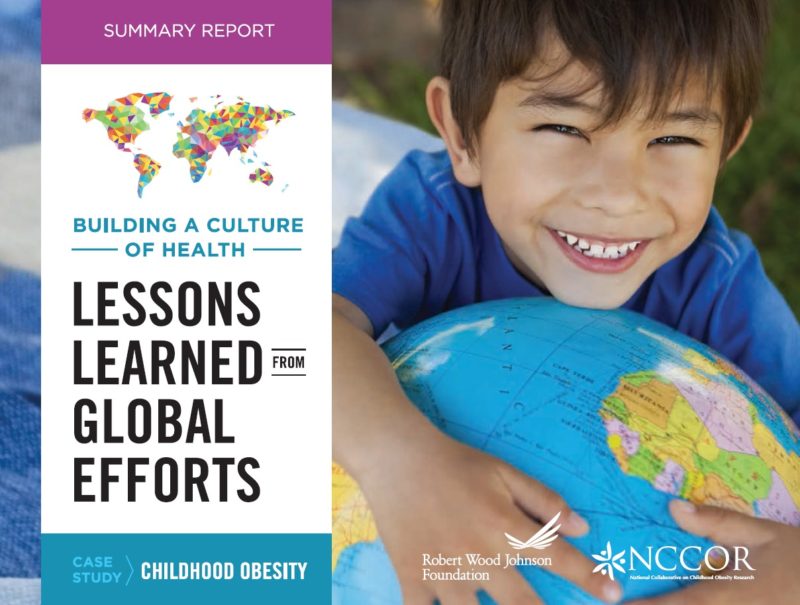
Share On Social!
Childhood obesity is a worldwide pandemic requiring collaboration at the local, state, federal and international level.
The National Collaborative on Childhood Obesity Research (NCCOR) recently released a report, Lessons Learned from Global Efforts, which highlights promising and innovative global strategies that:
- Promote healthy eating and active living
- Address inequities and disparities

Lower obesity rates are associated with walking, cycling and transit use
Source: NCCOR - Establish accountable public health-industry partnerships
For example, successful efforts include labeling, taxing and restricting marketing of junk food in Latin countries. Similarly, recommendations include improving equity in built environment factors such as walkability, access to parks, and aesthetics. “This requires a recognition that different socioeconomic groups respond differently to interventions and careful consideration to the design and implementation of interventions in order to increase their impact for disadvantaged groups”.
In addition to this recent report, NCCOR also publishes annual reports and case studies, as well as posts videos and resources regarding obesity prevention projects and research around the world.
The NCCOR focuses on efforts to:
- Identify, design, and evaluate practical and sustainable interventions, especially in high-risk populations and communities.
- Increase and improve national, state, and local surveillance of childhood obesity
- Improve the ability of childhood obesity researchers and program evaluators to conduct research and program evaluations
- Provide national leadership to accelerate implementation of evidence-informed practice and policy.
- Work with non-health partners to integrate childhood obesity priorities with synergistic initiatives (e.g., environmental design and sustainability, food systems, food marketing, disabilities, or economics).
Click here to read the Lessons Learned from Global Efforts report.
Click here to read the 2014 Annual Report.
Explore More:
Healthy Families & SchoolsBy The Numbers
142
Percent
Expected rise in Latino cancer cases in coming years



